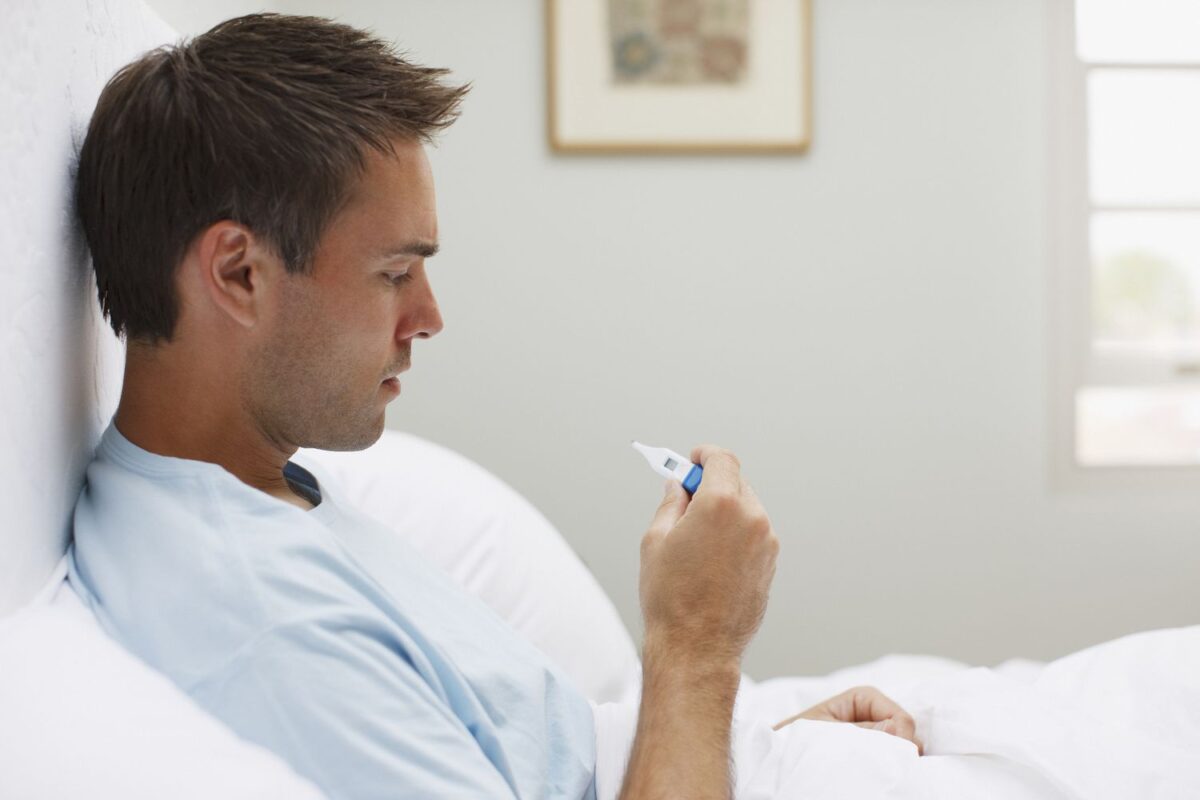The stereotype goes that men (particularly Aussie men) are notoriously not very proactive about their physical and mental health. However, new research commissioned by the Movember Foundation this Men’s Health Week reveals that we’re not as slack about our health as you might think – but we still have a long way to go…
Movember surveyed 2,000 adults aged 18-75 in Australia about the state of men’s health and their findings reveal a pretty positive counter-narrative: that Aussie men really do give a s*** about their health.
For instance, while the stereotype suggests that the average Aussie bloke will go to great lengths to avoid talking to a doctor, Movember’s findings show that over the last 12 months, 85% of Aussie men have taken the initiative to speak with a healthcare professional.
Beyond that, 52% of men will take charge of their health and make a healthcare appointment as soon as they suspect a health issue – which is actually higher than women at 50%. We’re more proactive than you might think.

DMARGE spoke with Dr Zac Seidler, clinical psychologist and Movember’s Director of Mental Health Training, who says “It’s so great to have hard data showing that ‘conventional wisdom’ is just a bunch of stereotypical anecdotes that seem to have caught on and lasted the test of time.”
“Men do seek help, they want support and often know how to get it… We need to break down reinforced ideas that in fact limit men from reaching out, because they think they’re weird or broken for doing so when in fact, it’s the bravest, most courageous thing they could do.”
Dr Zac Seidler
However, some reinforced ideas about men’s health still endure. Aussie men might be increasingly more proactive about their physical health, but that proactiveness doesn’t always extend to our mental health woes: Movember’s findings also suggest that Aussie men are more likely to prioritise their physical health (33%) over their mental health (22%).
Concerningly, while a majority of respondents took three weeks on average to book appointments for physical health issues, they took six weeks on average to book health appointments for mental health issues. Even more worryingly, 20% of men said they would not make an appointment for mental health issues.
WATCH MMA fighter Paddy “The Baddy” Pimblett’s candid message about men’s mental health below.
That suggests that we’ve still got a long way to go when it comes to taking men’s mental health more seriously and getting over our “she’ll be right, mate”, macho approach to mental health.
The most interesting data point from Movember’s research is the finding that 1 in 4 men surveyed believe that the Australian healthcare system prioritises women’s health over men’s health – and this has unique implications for men’s mental health in particular, Dr Seidler explains:
“A clear bias that exists is one in my world around mental health care, which is that something like therapy expects a certain level of emotional communication and vulnerability, something that contradicts the way that boys and men are brought up.”
Dr Zac Seidler
“So instead, finding space for men to experience and express distress in ways that make sense to them is key,” Dr Seidler emphasises. He continues: “There is no doubt that women are faced with challenges of their own. The system is filled with biases and barriers for people, regardless of their gender.”
“Our role at Movember is to shine a light on some of the things that get in the way of guys seeking help. It’s not about improving the system for men only, it’s about bettering the system so that the flow on effects for healthy men can lead to healthy families and communities,” he relates.

As Dr Seidler rightfully points out, men and women both face their own systemic challenges when it comes to receiving proper healthcare in this country – yet on average, men die 4.5 years earlier than women, and largely for preventable reasons. That’s why equal gendered healthcare is so important.
The theme of Men’s Health Week 2023 is Healthy Habits: focusing on encouraging men and boys to build healthy habits by identifying small changes they can make that benefit their health and well-being. One of those small changes or healthy habits men can build is simply talking more openly and frequently with their mates about their physical – but crucially, their mental – health concerns.
“Never forget the power of your mates,” Dr Seidler says. “Time and time again, we see research about longevity or happiness and the one finding that falls out is that those guys who prioritised social connection, who sought and maintained friendship, had the best lives.”
“We are social beings, we thrive off connection, and men are reliably poor at keeping this going as they age. Pick up the phone, and call your mates, it might just save your life, or theirs.”
Dr Zac Seidler
If you’re struggling with your mental health, please contact Beyond Blue, Lifeline, Suicide Call Back Service, MensLine Australia or see your GP for help.
